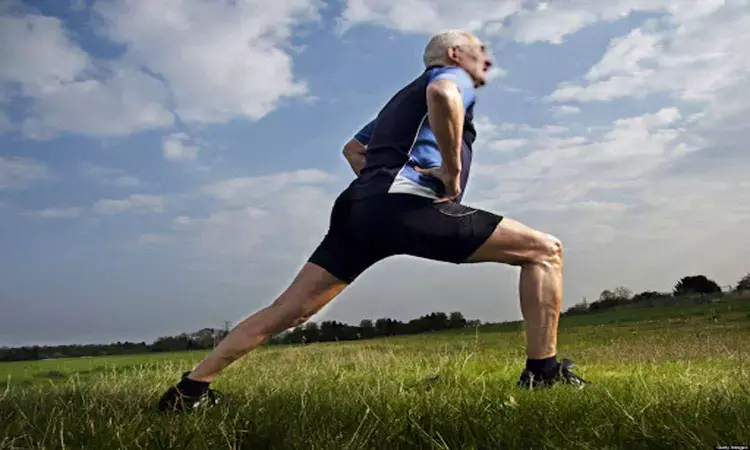- Home
- Medical news & Guidelines
- Anesthesiology
- Cardiology and CTVS
- Critical Care
- Dentistry
- Dermatology
- Diabetes and Endocrinology
- ENT
- Gastroenterology
- Medicine
- Nephrology
- Neurology
- Obstretics-Gynaecology
- Oncology
- Ophthalmology
- Orthopaedics
- Pediatrics-Neonatology
- Psychiatry
- Pulmonology
- Radiology
- Surgery
- Urology
- Laboratory Medicine
- Diet
- Nursing
- Paramedical
- Physiotherapy
- Health news
- Fact Check
- Bone Health Fact Check
- Brain Health Fact Check
- Cancer Related Fact Check
- Child Care Fact Check
- Dental and oral health fact check
- Diabetes and metabolic health fact check
- Diet and Nutrition Fact Check
- Eye and ENT Care Fact Check
- Fitness fact check
- Gut health fact check
- Heart health fact check
- Kidney health fact check
- Medical education fact check
- Men's health fact check
- Respiratory fact check
- Skin and hair care fact check
- Vaccine and Immunization fact check
- Women's health fact check
- AYUSH
- State News
- Andaman and Nicobar Islands
- Andhra Pradesh
- Arunachal Pradesh
- Assam
- Bihar
- Chandigarh
- Chattisgarh
- Dadra and Nagar Haveli
- Daman and Diu
- Delhi
- Goa
- Gujarat
- Haryana
- Himachal Pradesh
- Jammu & Kashmir
- Jharkhand
- Karnataka
- Kerala
- Ladakh
- Lakshadweep
- Madhya Pradesh
- Maharashtra
- Manipur
- Meghalaya
- Mizoram
- Nagaland
- Odisha
- Puducherry
- Punjab
- Rajasthan
- Sikkim
- Tamil Nadu
- Telangana
- Tripura
- Uttar Pradesh
- Uttrakhand
- West Bengal
- Medical Education
- Industry
Physical activity reduces risk of age related cataract, finds study

Chinese and Australian researchers have found that increased physical activity is inversely associated with ARC risk dose-responsively. The study has been published in the International Journal of Ophthalmology.
They conducted a meta analysis to summarize quantitatively the prospective association between physical activity and age-related cataract (ARC) risk.
The researchers combined studies of more than 170,000 people and found conclusive evidence that regular physical exercise reduces the risk of age-related cataracts, the cause of blindness in an estimated 13 million people worldwide.
In a recent paper researchers from Xi'an Jiaotong University and the University of South Australia (UniSA) analysed data from six different studies looking at how exercise reduces oxidative damage in the eye.
The researchers found a 10 per cent reduction in age-related cataracts (ARC) among people who engaged in regular physical activity such as walking and cycling.
UniSA epidemiologist Dr Ming Li says physical activity reduces oxidative stress in the eye by inhibiting lipid degradation which results in cell damage.
"We know that exercise increases antioxidant enzyme activity which has all sorts of benefits, including limiting infections and inflammation in the eye," Dr Li says.
Previous studies have shown that long-term physical activity also elevates HDL (high-density lipoprotein), otherwise known as the 'good cholesterol', which may carry more antioxidants from plasma to the lens to prevent oxidative damage.
Exercise also improves insulin resistance and lipid profiles, both of which have been associated with an increased risk of ARC.
"Age-related cataracts are one of the most common causes of vision impairment and blindness in the world and although surgery is an effective option to recover vision, it is very costly," Dr Li says.
"The lens is highly susceptible to oxidative damage because of its high concentration of polyunsaturated fatty acid and its specific biological function. Although we don't completely understand the mechanisms underlying ARC, we do know that ageing and oxidative damage play a crucial role in the development of the disease."
The researchers found that the risk of developing cataracts could potentially decrease by two per cent for every hour of cycling or walking per day.
"Considering the fact that 24 per cent of adults are inactive, these findings will hopefully encourage older people to start exercising on a regular basis," Dr Li says.
For further reference log on to: https://bit.ly/37djsS1
Dr Kamal Kant Kohli-MBBS, DTCD- a chest specialist with more than 30 years of practice and a flair for writing clinical articles, Dr Kamal Kant Kohli joined Medical Dialogues as a Chief Editor of Medical News. Besides writing articles, as an editor, he proofreads and verifies all the medical content published on Medical Dialogues including those coming from journals, studies,medical conferences,guidelines etc. Email: drkohli@medicaldialogues.in. Contact no. 011-43720751


